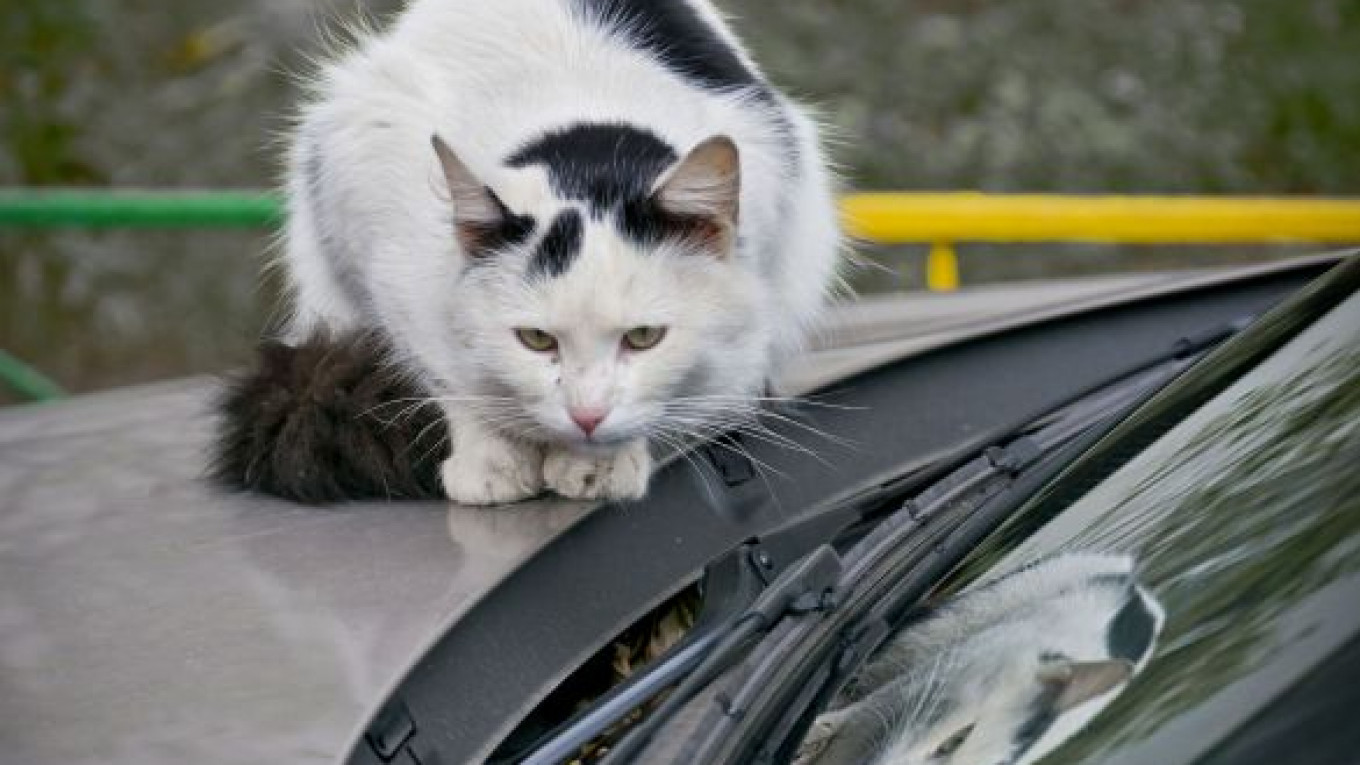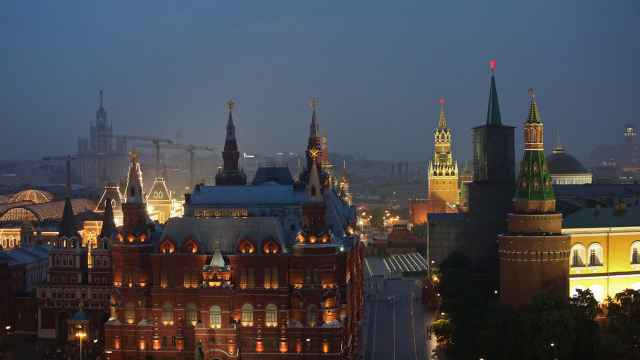Visitors to Moscow may be surprised by residents' outspoken fondness for their cats, but they shouldn't be. The animals occupy a special place in the city's apartment living, and broaching the subject with an elderly woman on the street will likely lead to a detailed description of her feline friends.
In keeping with that spirit, the Public Chamber's working committee on the treatment of animals has engaged experts in a debate over what to do with the city's stray cats.
At an event called "The Human Urban Environment: Who Do Cats Bother?" residents and experts discussed the pros and cons of stray cats, and more specifically, the problem of strays getting trapped in the air ducts of apartment buildings — a practice that is widely believed to be an initiative of the city administration.
Closing the air ducts that stem from apartment building basements first began in 2003 as a means to keep strays and rats out, but residents say that in many cases, stray cats have gotten stuck and ended up starving to death.
The issue captured the public's attention in February of this year, when Mitino resident Yevgeny Tolstyzhenko, a participant in last Thursday's roundtable, was hit with a 5,900 ruble fine ($178) for rescuing a cat trapped in the air duct of his apartment building.
Tolstyzhenko and his wife Natalya Shalanda had been feeding the cat through the bars after hearing it meow, and they contacted their housing cooperative to open up the basement and let the animal free in the summer of 2012.
Yet, according to widespread media coverage during the court proceedings over Tolstyzhenko's heroics, a city official refused to open the basement for the couple and later fined them for removing the metal bars that had been placed there. The bars were later reinstalled and a dead cat was found by one of the building's janitors.
Daria Khmelnitskaya, a member of the Public Chamber's working group and the director of Vita, an animal rights organization, said that closing off the homes of stray cats may cause more harm than good. One of the primary arguments of those in favor of the cats is that rats, who are more prone to carry diseases that are harmful to humans, are held off by felines who hunt them and keep the rodents away with the smell of their urine.
A representative of the Moscow Society for the Protection of Animals, Kirill Goryachev, said he was uncomfortable using stray cats in a "biological fight" against rats, however, and said that other methods like poison could be used to combat rats. He disagreed with the idea of taking care of the stray cats, saying,"If I ca not take care of a cat normally, if I do not have the money … then generally I am not going to have a cat."
Those who supported letting the cats stay said Russia's relationship with strays differed from the relationships with animals in other countries. Tolstyzhenko spoke of seeing animals during his travels to Israel, and Khmelnitskaya said cafe owners in Istanbul frequently fed stray cats.
Apartment residents should collectively decide what to do about animals in air ducts, Khmelnitskaya said, noting that this is how residents of her own building resolved the issue.
Alexander Kazakov, the Public Chamber's expert analyst, who with the working group will give a recommendation about stray cats that live in apartment buildings to the chamber, said that he hoped to have a resolution on the matter by the end of the meeting but disagreed with Khmelnitskaya's recommendation.
Kazakov said that despite the fact that people show more enthusiasm for animals than political elections, coordinating such decisions collectively would be impossible for larger buildings.
Indeed, the fate of animals is one aspect of society where grassroots activism and public opinion sways authorities. Authorities in Sochi put out a tender for a company to catch and exterminate more than 2,000 strays in April of this year, before pressure from local organizations and Humane Society International caused the plan to be scrapped, USA Today reported.
Thursday's roundtable ended on a decidedly less dramatic note. After hearing from the assembled speakers, Kazakov decided that more input was necessary and proposed creating a seminar in the near future with biologists like Vyacheslav Rozhnov, deputy director of the Institute of Ecology and Evolution.
Kazakov told The Moscow Times after the meeting that the opinion of Rozhnov, who he called "more a scientist than an official," and other researchers would be a valuable contribution to the working group's recommendation.
He added that he would try to schedule the seminar for December but in all likelihood more work on the subject would need to be put off until next year.
Meanwhile, residents continue to take care of the stray cats as winter approaches. Svetlana, a lively pensioner who lives in the Marina Roshcha neighborhood, buys and provides food and milk for the felines in her building, who shy away from strangers but are comfortable around their caretaker. The air ducts outside the building were once sealed off but residents tore them open, she said, and more than a dozen cats can be seen strolling around the apartment courtyard.
"We should be more open, more sociable" to people and animals, Svetlana said as she chatted with a passerby about the appearance of a new kitten. While she sees the cats as useful in keeping away rodents, she said, "It is not only about the rats, it is about love for the animals who we can help."
"We wish that it wasn't so, that the government established shelters for the cats. But they practically do not exist," she said.
Contact the author at [email protected]
A Message from The Moscow Times:
Dear readers,
We are facing unprecedented challenges. Russia's Prosecutor General's Office has designated The Moscow Times as an "undesirable" organization, criminalizing our work and putting our staff at risk of prosecution. This follows our earlier unjust labeling as a "foreign agent."
These actions are direct attempts to silence independent journalism in Russia. The authorities claim our work "discredits the decisions of the Russian leadership." We see things differently: we strive to provide accurate, unbiased reporting on Russia.
We, the journalists of The Moscow Times, refuse to be silenced. But to continue our work, we need your help.
Your support, no matter how small, makes a world of difference. If you can, please support us monthly starting from just $2. It's quick to set up, and every contribution makes a significant impact.
By supporting The Moscow Times, you're defending open, independent journalism in the face of repression. Thank you for standing with us.
Remind me later.






